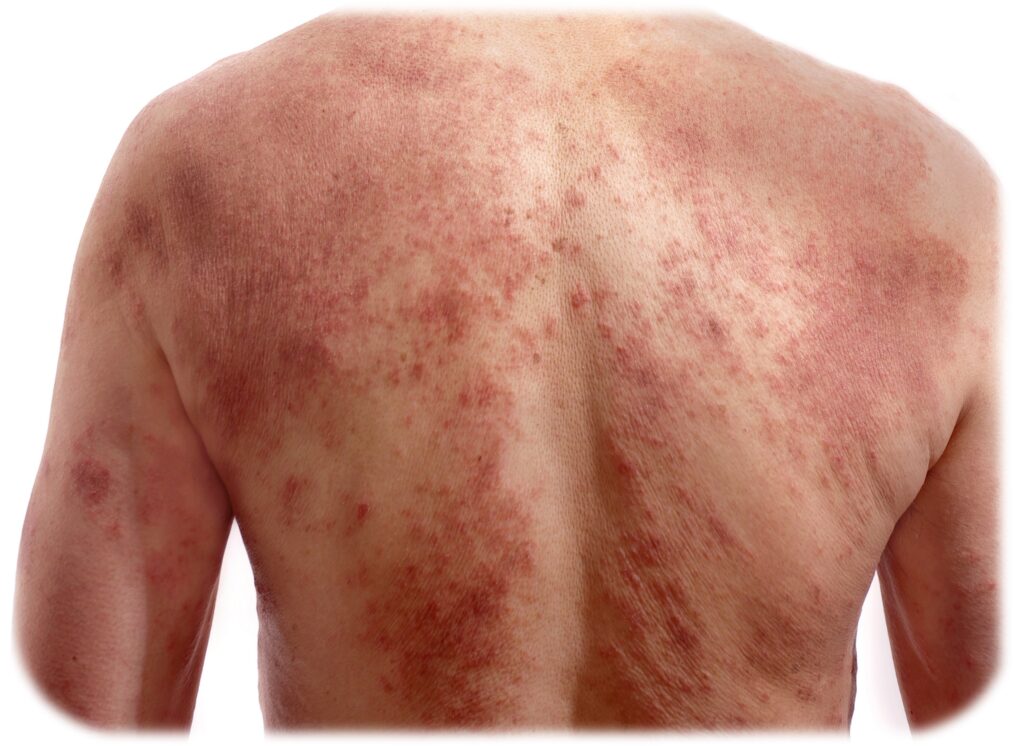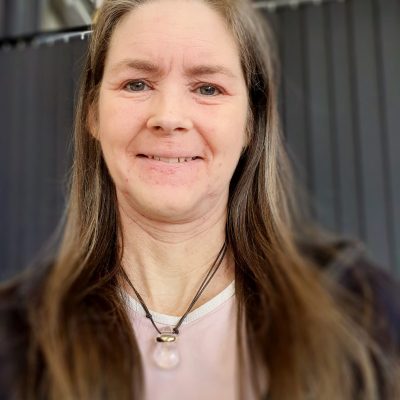Atopic dermatitis (AD) is the most common type of eczema, occurring in up to 3% of the adult population worldwide, and it is the most common skin disease among children, with the disease commonly occurring by five years of age.
AD is characterized by a defect in the skin barrier, which allows allergens and other irritants to enter the skin, leading to an immune reaction and inflammation. This reaction produces a red, itchy rash, most frequently occurring on the face, arms and legs, and the rash can cover significant areas of the body, in some cases half of the body or more. The rash causes significant pruritus (itching), which can lead to damage caused by scratching or rubbing and perpetuating an ‘itch-scratch’ cycle.
Source: Diagnosed patients incl. US, EU5, and Japan (Evaluate Pharma 2023)

Substantial burden for patients living with atopic dermatitis
AD imposes a substantial burden on both the patient and, particularly in the case of pediatric patients, the parents and the family. Pediatric patients with AD can suffer from sleep disturbances, behavioral problems, irritability, crying, interference with normal childhood activities, and social functioning. Parents and families of pediatric patients with AD can also be impacted by a lack of sleep, emotional distress due to their child’s suffering, and the added workload caring for the AD patient. Adults with AD also frequently suffer from sleep disturbances, emotional impact, and impaired social functioning. Adults with AD also appear to be at a significantly increased risk of anxiety, depression, and suicidal ideation compared to the general population.
Meet Amalie, a 26-year-old woman diagnosed with severe atopic dermatitis.
Read Amalie’s story
Meet Emma, a young woman living with atopic dermatitis.
Treatment of AD
The vast majority of atopic dermatitis patients are being treated with topical therapies, particularly topical corticosteroids and topical calcineurin inhibitors. In addition to this, systemic therapies are used in those patients who fail on topical therapy. Use of biologic therapies for atopic dermatitis is currently limited but is expected to increase. Some physicians and patients have expressed dissatisfaction with current treatments due to the overall suboptimal symptomatic improvement, poor safety, limited ability to control itch, and limited impact on patient/parent quality of life.
There are currently no oral therapies approved by the FDA for the treatment of AD that are safe for long-term use and exempt from monitoring.
UNION is developing oral orismilast for the treatment of AD.
Read more about orismilast here


Meet Irene and learn about her experience with atopic dermatitis (eczema). A disease she was diagnosed with when she was 5 years old. Read Irene’s story.
” At times, I can be very frustrated about having atopic dermatitis e.g., when the itching is severe, and the skin is frayed and one cannot live life as all other people”.


